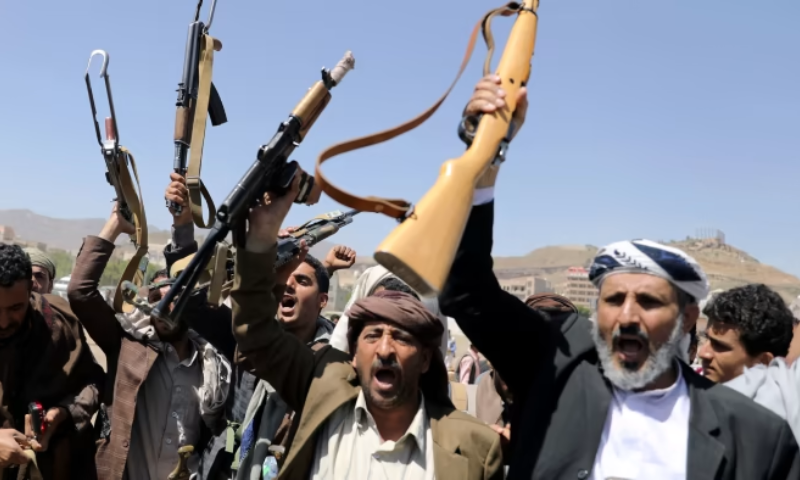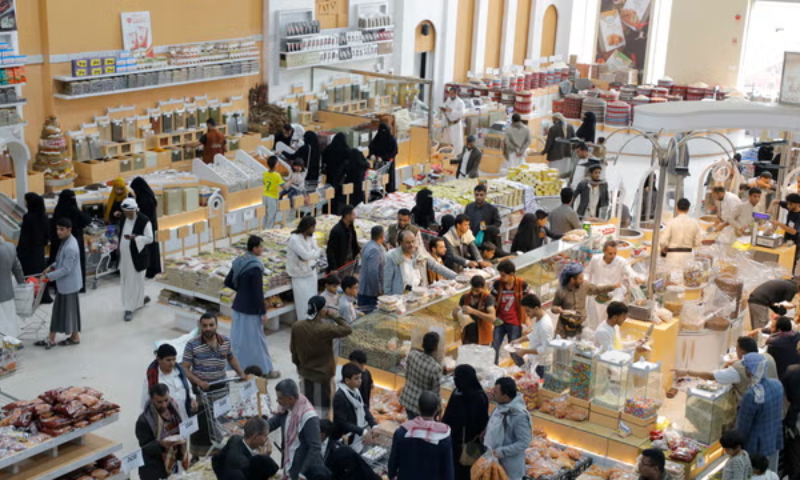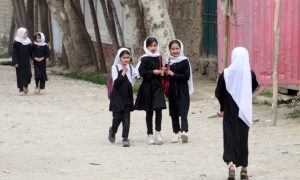SANAA, Yemen: Yemen’s Houthi and the internationally recognized government are embroiled in a fierce battle for control over the country’s banking system.
Experts warn this conflict is further damaging an economy already crippled by nearly a decade of war. The struggle over the banks is pushing Yemen’s financial system into deeper turmoil. The Houthis, who control the north and center of the country, and the government, running the south, use different currency notes with varying exchange rates and operate rival central banks.
The escalating divide is eroding the value of Yemen’s currency, the riyal, driving up prices for essential goods like clothing and meat, especially noticeable during the Islamic holiday of Eid Al-Adha. For weeks, Yemenis in Houthi-controlled areas have been unable to withdraw money from their bank savings accounts, reportedly because the Houthi-run central bank in Sanaa has stopped providing liquidity to commercial and government banks. This has led to protests outside banks, which have been dispersed by security forces.
Yemen has been in a state of civil war since Houthi took over Sanaa and much of the north and center in 2015. The Saudi-backed government, along with its ally, the Southern Transitional Council supported by the UAE, governs the south and much of the east, centered in Aden.
The conflict over the banking system threatens to undermine the ability of merchants to import food and basic commodities, disrupting the transfer of remittances from Yemenis abroad, which many families depend on, said Edem Wosornu, director of operations and advocacy for the UN humanitarian coordination office, OCHA. This financial split could deepen poverty, worsen food insecurity, and increase reliance on humanitarian assistance. If the dispute escalates, banks in Houthi-run areas might be completely barred from international financial transactions, which could have catastrophic effects.
In response to the financial split, the central bank in Aden, relocated there by the internationally recognized government in 2016, began issuing new banknotes to replace worn-out riyals. Houthi authorities banned the use of these new notes in areas under their control. In March, the Houthi-controlled central bank announced the introduction of its own 100-riyal coins. The international community and Yemen’s government condemned this move, warning it would deepen Yemen’s economic divide.
The exchange rates differ significantly, with Sanaa-issued riyals trading at about 530 to the dollar, while those from Aden are around 1,800 to the dollar. The central bank in Aden has given banks 60 days to relocate to the southern city and stop operating under Houthi policies or face sanctions related to money laundering and anti-terrorism laws. However, no banks met the deadline, either needing more time or fearing Houthi sanctions if they moved.
As the deadline passed, the Aden central bank banned dealings with six banks headquartered in Sanaa. In retaliation, the Houthi-run central bank in Sanaa banned all dealings with 13 banks based in Aden, meaning people in Houthi-controlled areas can’t deposit or withdraw funds through these banks or receive wire transfers made through them.
A cash crunch affects both parties. The Houthi government has little foreign exchange sources, and its newly issued coins are not accepted outside of its borders.
The US designation of the Houthis as a global terror group in January has led to global financial concerns, possibly deterring banks from dealing with Houthi-controlled banks, said Youssef Saeed, an economic professor at the University of Aden.
Aden’s economy isn’t all that much stronger. Since oil shipments, the primary source of foreign exchange, were suspended in late 2022 due to Houthi raids on key terminals, government earnings have been severely impacted.
Since March, depositors in Houthi-run areas have been unable to withdraw money from their accounts. The Sanaa central bank has informally stopped releasing funds that individual banks have deposited, partly due to a lack of liquidity.
























